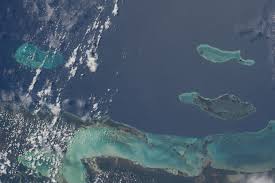World Bank Approves $20M Disaster Resilience Fund to Support Belize Reforms
Belize, a small Central American nation of approximately 430,000 people, is recognized globally as one of the most climate-vulnerable countries.

- Country:
- Belize
In a decisive move to strengthen its resilience against natural disasters and climate-related shocks, the World Bank Group’s Board of Executive Directors has approved a US$20 million Development Policy Credit for Belize. This financing comes with a Catastrophe Deferred Drawdown Option (Cat-DDO), a specialized instrument that provides immediate, flexible funds in the event of a major natural or public health emergency.
The operation is designed to not only bolster Belize’s disaster response capacity, but also to support a wide-reaching reform agenda focused on enhancing climate resilience, fiscal stability, and financial protection for vulnerable populations.
One of the World’s Most Climate-Vulnerable Countries
Belize, a small Central American nation of approximately 430,000 people, is recognized globally as one of the most climate-vulnerable countries. It ranks third among small island developing states (SIDS) for disaster risk and fifth for climate change risk. With nearly 60% of its population living in coastal areas and a third residing in low-lying zones, the country is highly exposed to hurricanes, flooding, and coastal erosion.
Recent years have brought a wave of severe climate events, including:
-
Hurricane Nana in 2020
-
Hurricane Lisa in 2022
-
A prolonged drought in 2019
According to the 2022 Climate Risk Index, Belize ranked as the second most affected country globally in terms of relative economic losses from climate extremes. Average annual damages from natural disasters are estimated at US$27 million, and a single major disaster could inflict losses exceeding US$670 million—nearly a quarter of national GDP.
Cat-DDO: A Tool for Resilience and Rapid Response
The Catastrophe Deferred Drawdown Option (Cat-DDO) is a contingency credit line that gives Belize access to up to US$20 million in immediate liquidity in the aftermath of a declared natural disaster or public health crisis. Crucially, this funding can be deployed rapidly, enabling the government to maintain essential services and begin early recovery efforts without diverting funds from long-term development programs.
“This project gives Belize the tools it needs to respond swiftly to emergencies while staying on course with its long-term development plans,” said Lilia Burunciuc, World Bank Director for the Caribbean. “By strengthening disaster preparedness and financial resilience, Belize is taking important steps to protect its people and economy from the growing impacts of climate change.”
Reform Agenda to Boost Preparedness and Financial Protection
The World Bank Cat-DDO not only provides emergency financing—it is also tied to a robust reform agenda. The Government of Belize has committed to implement a series of structural and regulatory reforms in two core areas:
1. Strengthening Disaster Preparedness and Climate Resilience
-
Adoption of the National Disaster Preparedness and Response Plan, the first of its kind for Belize
-
Introduction of a National Land Use Policy to promote sustainable urban and rural development
-
Issuance of regulations for a National Building Code, incorporating climate-resilient construction standards
2. Enhancing Financial Protection and Fiscal Resilience
-
Development of a Disaster Risk Financing Policy and Implementation Plan, supported by the Inter-American Development Bank and the GFDRR
-
Commitment to publish an annual Fiscal Strategy Plan, including a Medium-Term Fiscal Framework
-
Introduction of microinsurance regulations to expand affordable risk protection for small businesses and low-income households
These reforms are expected to increase institutional capacity, ensure better disaster risk governance, and protect vulnerable populations from economic setbacks triggered by climate shocks.
Part of a Broader Regional Strategy
Belize joins a growing list of Caribbean nations leveraging Cat-DDOs to build financial buffers and institutional readiness for climate resilience. Other participating countries include Barbados, Dominica, Saint Lucia, Grenada, and Saint Vincent and the Grenadines.
The operation also aligns with Belize’s National Energy and Climate Plans, and regional frameworks such as the Caribbean Disaster Emergency Management Agency’s Comprehensive Disaster Management Strategy.
The credit is being extended through the International Development Association (IDA), the World Bank’s window for low-income and small state economies. Since its creation in 1960, IDA has provided over $496 billion to 114 countries, with Africa and climate-vulnerable small states like Belize receiving priority support.
Building a Safer and More Resilient Belize
With the threat of climate change looming large, this new US$20 million credit marks a transformational opportunity for Belize to institutionalize resilience, invest in disaster preparedness, and protect hard-won development gains from being wiped out by climate-induced shocks.
By implementing a combination of policy reforms, risk financing mechanisms, and inclusive planning, Belize is not only responding to immediate vulnerabilities but also laying the groundwork for long-term economic security and climate adaptation.









